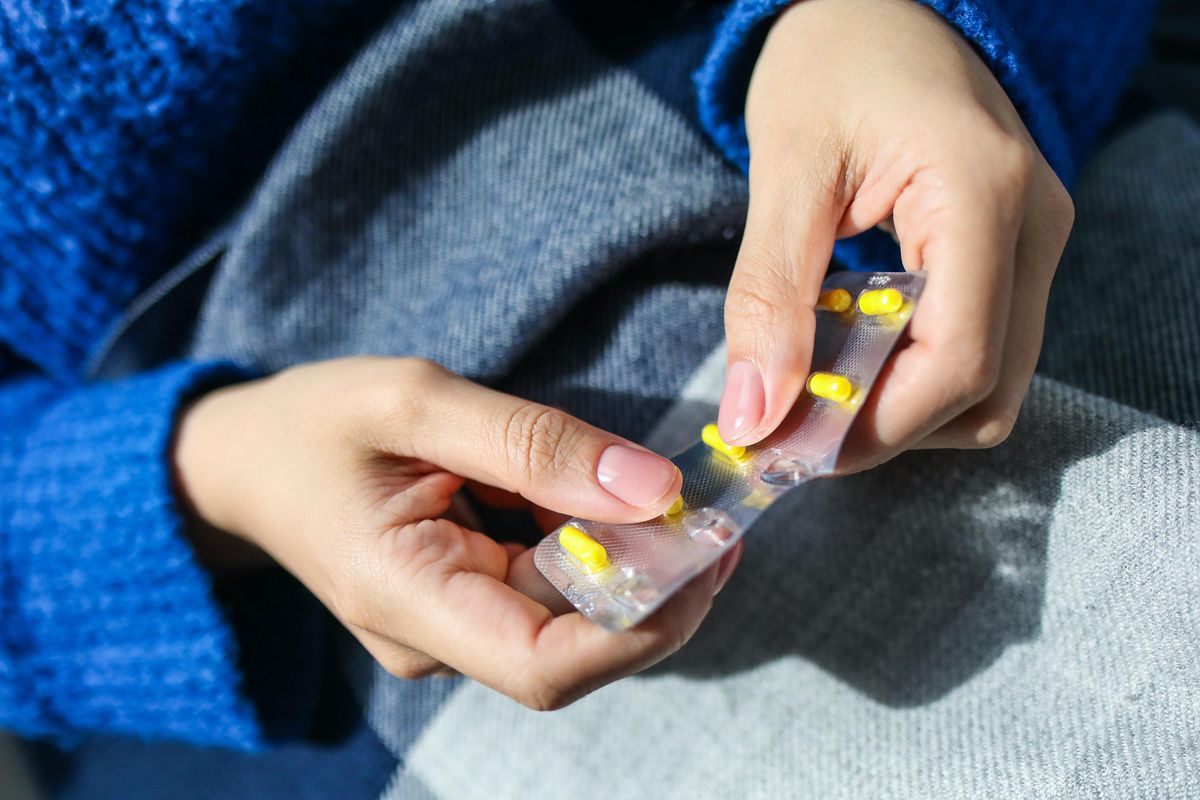If sex, or even the thought of sex, is about as appealing to you lately as flossing your teeth, it's time to figure out what's going on-if it's bothering you.
Consider making an appointment with your health care provider and make sure there's nothing physically wrong with you. Also, talk to him or her about your relationship, your stress level, your own sexual history and your perceptions about sex. But there's one other thing you should take a look at: your medicine cabinet.
There are several commonly used medications that can impact sexual functioning. You may have heard about the effects of certain antidepressants on sexual function. These sexual-health related problems include reduced desire, less arousal and sensation and difficulty reaching orgasm.
If you are taking an antidepressant that you think may be causing sexual side effects, or are not sure if the drug you are taking causes these problems, talk to your health care provider. Most important, however: Do not try to alter your treatment therapy on your own. This can be dangerous both in terms of side effects and a return of the depression. Instead, work with your health care professional to identify the best options for your health and sexual well-being.
Other drugs have been reported to affect sexual health. These include seizure-preventive medications, drugs that lower blood pressure or cholesterol, anti-anxiety medications and medication used for treating bipolar disorder.
Additionally, some women blame their low libido on their birth control pills, but the evidence is mixed. A recent review of several studies published on the topic over the past 30 years found that while some groups of women have reported sexual side effects from oral contraceptives, there was not enough evidence to determine that the birth control pills were at fault. If you're suspicious about your oral contraceptive and how it affects your sex life, discuss your concerns with your health care professional.
And don't forget illegal substances. While many people think drugs like cocaine, marijuana and heroin enhance sexuality, the reality is that they usually have a dampening effect. In addition, many illegal drugs can impair your judgment, resulting in risk-taking behaviors such as unprotected sex. This, in turn, can result in unintended pregnancies and sexually transmitted infections.
Finally, watch your alcohol intake. Although alcohol reduces inhibition and might initially make you more relaxed and interested in having sex, getting drunk typically reduces libido, affects arousal, can prevent orgasm and adversely impairs your judgment. The National Institute of Alcoholism and Alcohol Abuse defines safe, moderate drinking as "up to two drinks per day for men and one drink per day for women and older people." A "drink" is defined as one 12-ounce bottle of beer or wine cooler, one 5-ounce glass of wine or 1.5 ounces of 80-proof distilled spirits.
Again, make sure you talk with your health care professional about the possibility that some medication you're taking is contributing to your loss of desire and sexual satisfaction. If the two of you identify the problem, ask about alternatives or strategies that may help address the problem. Sex can be an important (and fun) part of life. If a medication you are taking may be interfering, there could be other options to consider.







